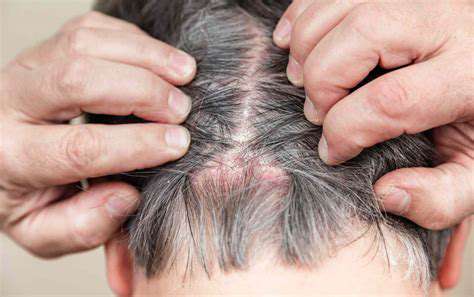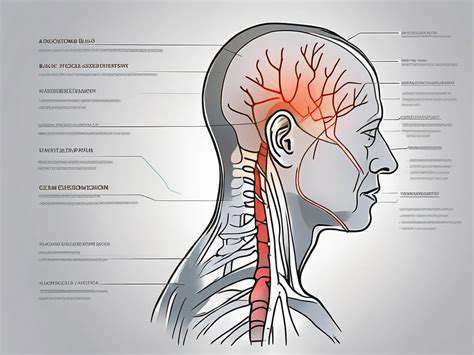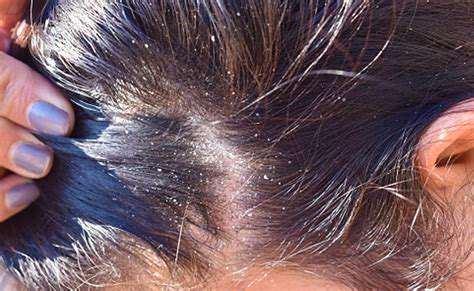Causes and Treatments for Persistent Scalp Pain
Common Causes of Scalp Pain

Understanding Migraines and Tension Headaches
Migraines are a primary cause of scalp pain for many individuals. This type of headache can lead to discomfort that radiates across the scalp, often accompanied by sensitivity to light. Tension headaches, on the other hand, typically occur due to stress and muscle tension in the neck and scalp area. These headaches can create a sensation of tightness, leading to persistent pain.
It's essential to recognize the early signs of these headaches to manage them effectively. Individuals experiencing migraines may notice a range of symptoms, including nausea or visual disturbances, which can highlight the migraine's onset.
Over-the-counter medications can often relieve tension headaches, but more severe migraines may require prescription treatments. Seeking appropriate medical advice is crucial for managing chronic pain effectively.
In addition to medication, lifestyle changes such as stress management techniques can also provide significant relief for individuals suffering from debilitating headaches.
Scalp Conditions and Their Impact on Pain
Various scalp conditions can contribute to persistent pain, including conditions such as psoriasis or eczema. These conditions can lead to inflammation and soreness in the scalp, resulting in significant discomfort for those affected.
Additionally, infections like folliculitis can also induce pain and irritation. Folliculitis is an inflammation of the hair follicles that can cause painful bumps and sensitivity on the scalp. It's important to identify and treat these scalp conditions to alleviate pain effectively.
Many treatments are available for these skin conditions, ranging from medicated shampoos to topical treatments. Consulting with a dermatologist can provide tailored solutions for managing these issues and improving overall scalp health.
Maintaining proper scalp hygiene and using appropriate hair care products can also play a vital role in preventing and managing these conditions. Regular check-ups can help in early detection and intervention of potentially painful scalp issues.
Neuropathy and Nerve-Related Pain
Neuropathy is another common reason for scalp discomfort, where nerves become damaged or irritated. This condition can lead to unusual sensations, including sharp pain or tingling in the scalp area.
Conditions such as diabetes or multiple sclerosis can contribute to nerve damage that results in persistent scalp pain. Identifying the underlying conditions is essential for effective treatment. Management strategies may include medication to reduce nerve pain or physical therapy to improve nerve function.
Patients may also benefit from alternative treatments, including acupuncture or massage therapy, which can alleviate some of the discomfort associated with nerve-related pain. Regularly addressing these symptoms can help enhance the quality of life for individuals experiencing scalp neuropathy.
Furthermore, lifestyle modifications such as improved nutrition and exercise can also contribute to nerve health and overall well-being. Understanding the connection between nerve health and scalp discomfort is vital for effective pain management.
Treatment Options for Scalp Pain

Treatment Options for Scalp Pain
There are several approaches to treating persistent scalp pain, including medication, physical therapy, and alternative treatments. Consulting a healthcare professional is crucial for determining the best course of action tailored to individual needs.
Over-the-counter pain relief medications such as ibuprofen or acetaminophen can alleviate mild discomfort, while prescription medications may be necessary for more severe cases. Regular follow-ups with a healthcare provider are necessary to monitor the situation and adjust treatment as needed.
Home Remedies and Lifestyle Changes
Some individuals find relief through home remedies and lifestyle changes that can reduce scalp discomfort. Incorporating stress-reduction techniques such as yoga and meditation can significantly improve overall well-being and may help alleviate scalp pain.
Additionally, maintaining a healthy diet rich in vitamins and minerals supports scalp health. Staying hydrated and avoiding excessive heat styling can also prevent exacerbation of scalp pain.
Identifying Underlying Conditions
Persistent scalp pain can often be a symptom of underlying conditions that may require specific treatment. Skin disorders like psoriasis or eczema can lead to inflammation and discomfort, necessitating targeted therapies. Understanding the root cause of the scalp pain is essential in order to determine the most effective treatment strategy.
Other potential underlying issues include tension headaches or nerve-related conditions, which might require diagnosis through imaging studies or consults with specialists. Early intervention can prevent complications and enhance the quality of life for those affected by scalp pain.



